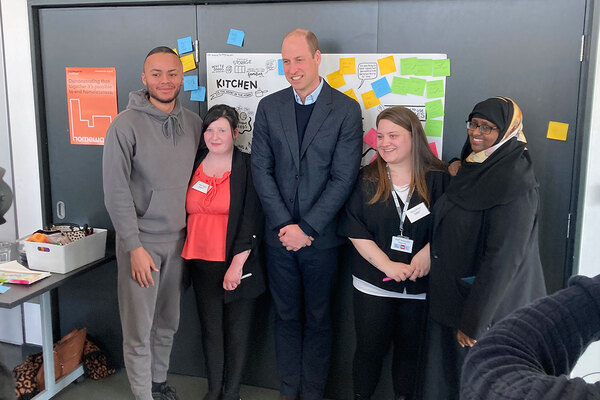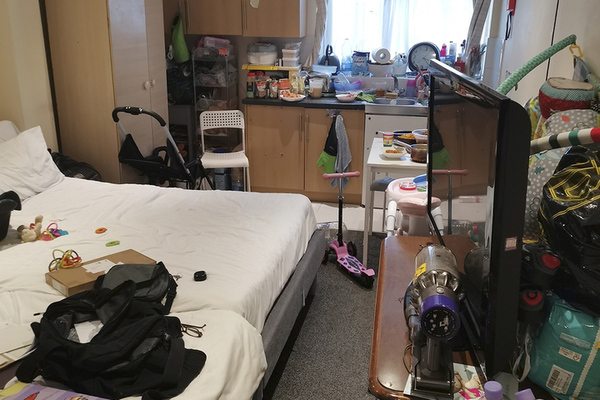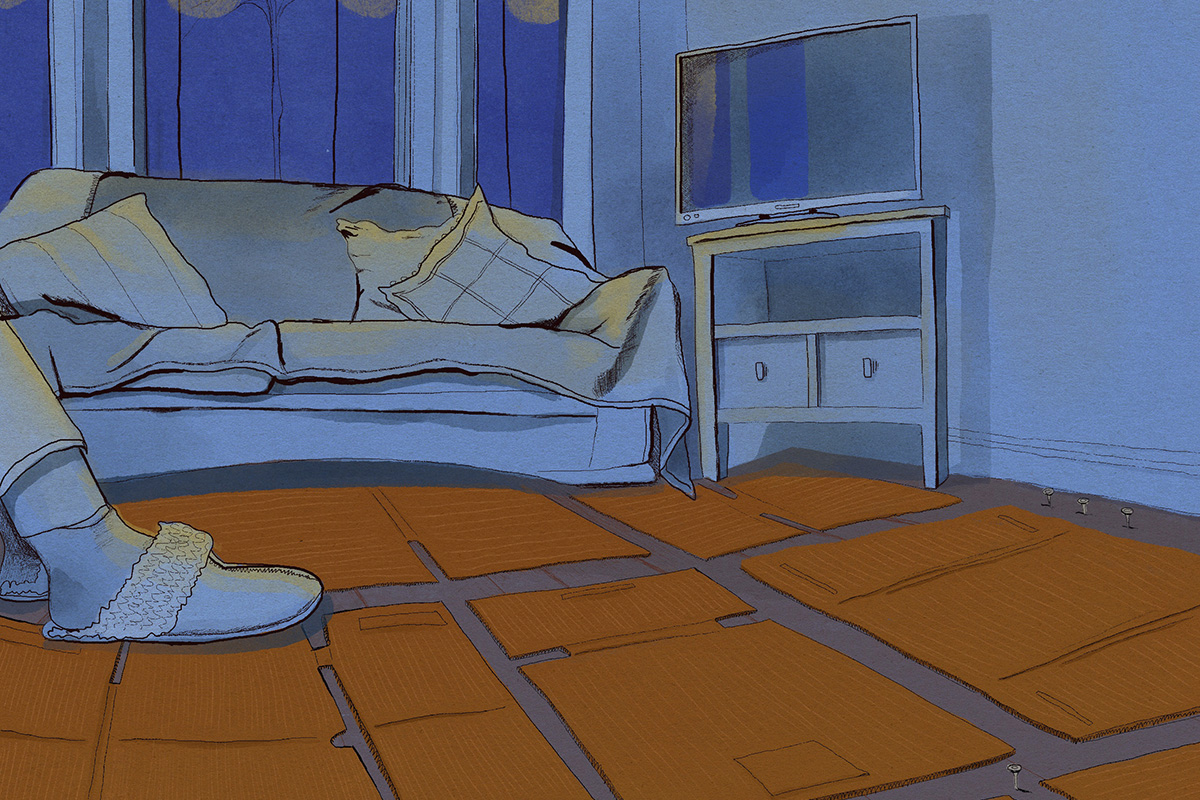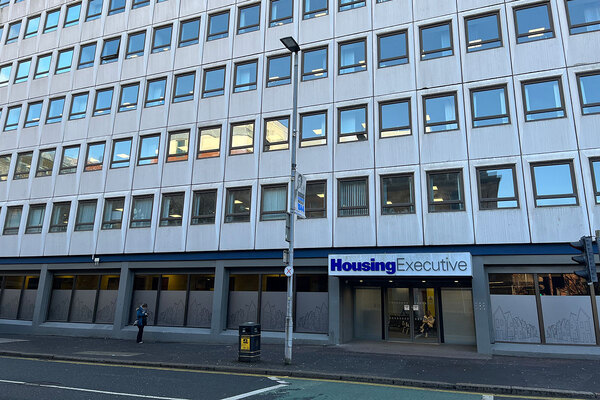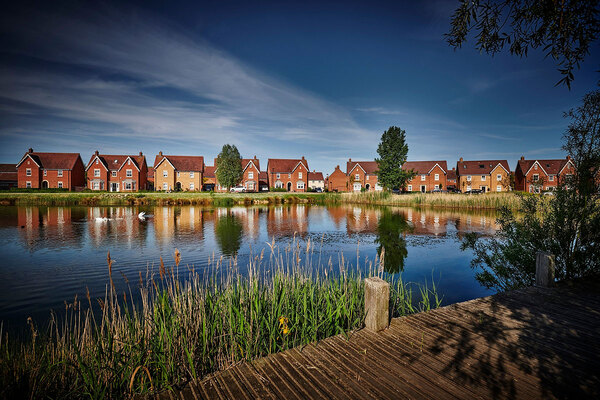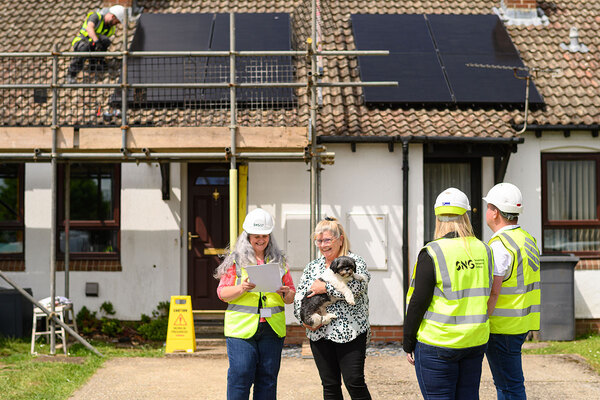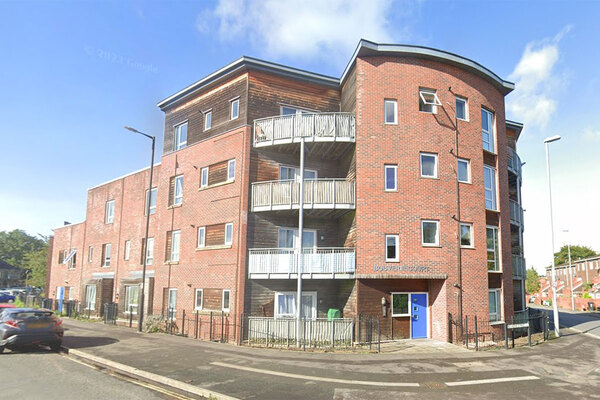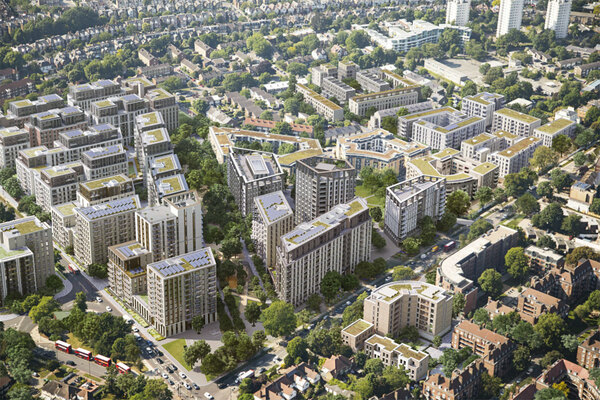You are viewing 1 of your 1 free articles
Former US president’s charity outlines plans to tackle UK housing crisis
A charity associated with former US president Jimmy Carter has outlined its plans to combat the housing crisis in the UK.
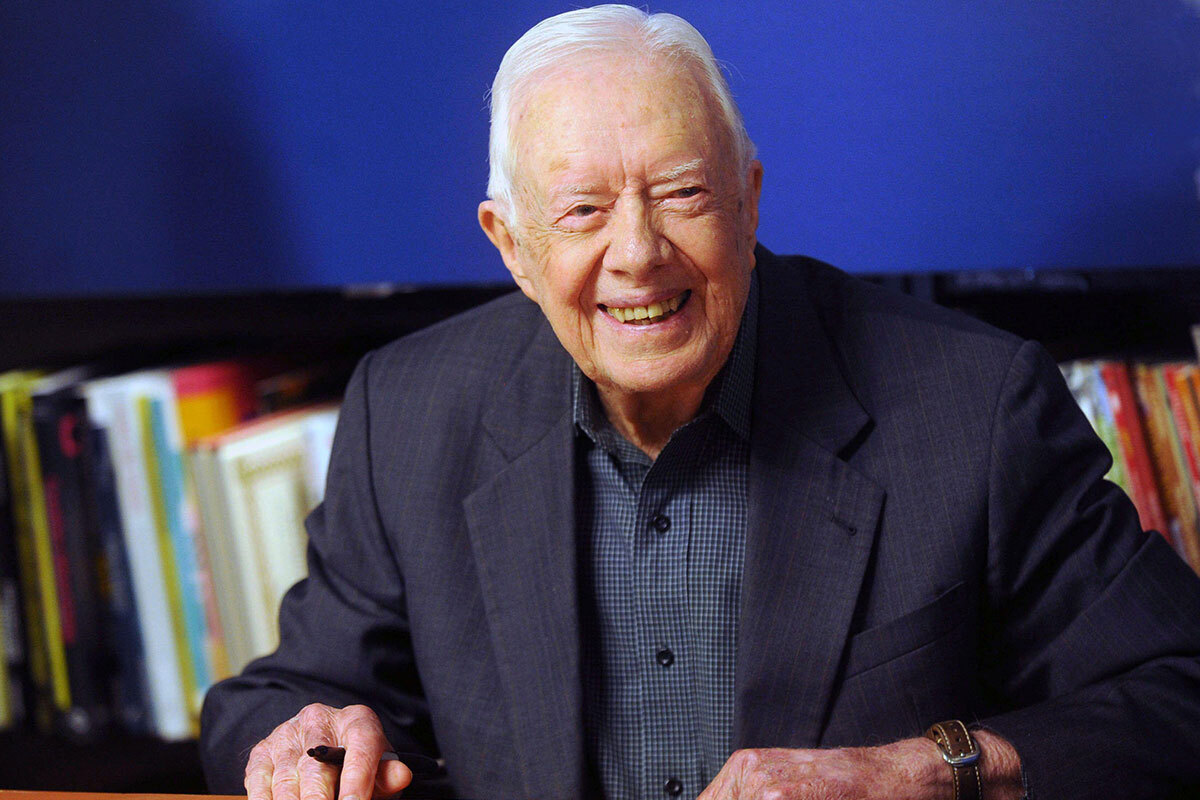
Habitat for Humanity, which builds homes around the world for people on low incomes, is encouraging efforts to convert empty council offices into social housing.
According to the non-profit, which launched in the UK in the 1990s and is supported by real estate organisations, there are 7,000 commercial premises owned by local authorities across the UK which have been empty for over a year.
The charity’s plans include working with Prince William’s Homewards initiative and completing its first empty building conversion in Scotland. It is also considering launching an investment fund.
Last year, it published a toolkit to help local organisations convert disused office and retail space into social housing by offering guidance on community engagement, fundraising, legal guidance and design.
The idea was to share its learning after completed three follow-on accommodation projects for 14 young care leavers in the London borough of Barking and Dagenham.
David Clare, chief executive of Habitat for Humanity GB, explained the model to Inside Housing. He said: “It can remain in the ownership of the local authority, and we can bring back the property into a refurbished state using a combination of grant funds and some recycled funding.”
It is hoping to replicate the Barking and Dagenham partnership in some of the locations where Prince William’s Homewards initiative is operating in. “We’ve joined one of the working groups in their Lambeth location,” said Henrietta Blackmore, national director of Habitat for Humanity GB.
She added that the charity is considering an investment fund “in the longer term” to “build on the construction demonstration work and take that to a larger scale”.
In Scotland, Habitat for Humanity has partnered with community group Midsteeple Quarter to buy and refurbish a historic building in Dumfries town centre with support from the Architectural Heritage Fund and the National Lottery. Work is expected to complete in summer 2024.
Laura Jockers, head of ESG at M&G Real Estate, is supporting the charity. She said: “[Post-pandemic] repurpose is on everybody’s lips… and local authorities are not immune to having surplus bricks and mortar that they need to reposition.”
“In terms of the environmental credentials of repurposing existing space, this is also a topic of importance,” she said. “The most sustainable building is one that’s already built.”
Ms Blackmore urged housing associations and councils to consider converting their empty offices to homes.
“If a housing association or other any other provider has properties that would be suitable for this type of kind of retrofit, regeneration usage, then, we’d call on all of them to consider the empty places to home model,” she said.
“On its own, empty spaces to home conversions are not going to solve the housing crisis,” said Christopher Kerr, head of ESG at law firm Davitt Jones Bould, which is also supporting the charity.
“But as a tool in the toolkit, I think it’s really powerful and effective.
“From a strategic perspective for housing associations, when there are so many difficulties of building new homes… considering this option would really increase supply at a much quicker rate,” he added.
Habitat for Humanity ensures its conversions meet local HMO guidance. “You need to be willing to go deep into the retrofit when necessary to so it’s not just a skin-deep solution,” Mr Clare said.
Through corporate and volunteer upcycling days, it has been able to furnish some of its flats. “It really looks lovely when you walk in, everything’s there and ready for them, and they can literally just move in,” Mr Clare added.
A push for greater regulation around empty space to home conversions would have seen the government adopt the Town and Country Planning Association’s healthy homes standards in the Levelling Up and Regeneration Bill, but this measure was dropped before it became law in 2023.
While the toolkit “does a great job of pushing quality,” Mr Kerr said, “some additional regulation would be really useful”.
“That may actually lead to more empty spaces to homes conversions, because people feel much more comfortable making them.”
Jimmy Carter has been involved with Habitat for Humanity in the US since 1984. The 99-year-old was president of the US from 1977 to 1981 and is the longest living US president in history.
Sign up for our Council Focus newsletter
Already have an account? Click here to manage your newsletters
